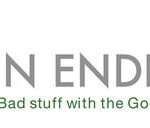 BY LINDA BAKER | OB EDITOR
BY LINDA BAKER | OB EDITOR
Portland startup Green Endeavor strikes gold, inking a partnership with Underwriters Laboratories, an Illinois-based consulting and certification company with offices in 46 countries.
 BY LINDA BAKER | OB EDITOR
BY LINDA BAKER | OB EDITOR
It’s been about a year since I first wrote about Green Endeavor, a Portland company that provides green cleaning solutions for industrial clients. Barely two years old, the startup was busy scoping out the market, building an expert advisory team (including University of Oregon green chemistry experts) and tracking down eco-friendly products from small batch producers.
This past week, Green Endeavor struck gold, inking a partnership with Underwriters Laboratories, an Illinois-based consulting and certification company with offices in 46 countries — including an outpost in the Portland area. UL’s Environment Division verifies sustainable product claims through a variety of certification and testing services.
The UL partnership validates Green Endeavor’s vision, said CEO B. Scott Taylor, sounding positively elated. Collaborating with a global heavy hitter will help scale business and standardize the fledgling industry, he said.
UL “saw a unique opportunity” to partner with an organization that has identified a market and helped drive change, said Mark Rossolo, UL’s global director of public affairs. Green Endeavor “is doing something currently nobody else is really doing.”
The UL deal caps a year of growth for Green Endeavor. Taylor declined to reveal revenues but the company has since landed about 20 new accounts, including Royal Canin (a division of MARS), Royal DSM Traditional and the Long Company, an independent bakers coop that assists its 250 wholesale bakery members with management and operations.
Participating bakeries include a Puyallup, Wash. facility that churns out 1 million McDonalds’ buns daily.
Green Endeavor’s Oregon clients include Ponzi Vineyards and PS Trucking. A Guam affiliate works with hotels, marinas, and waste management companies.
Over the past 10 years green household cleaners have become, well, household fixtures in the U.S. But industrial users such as food processors and manufacturers have been slow to jump on the eco cleaning bandwagon. Convincing a stodgy conservative business sector to use products that lack uniformity or validation has been a slow and often frustrating process, says Taylor,
But change is on the horizon, driven in part by local and federal environmental regulations limiting use of toxic chemicals. Hazardous materials “are also going to be regulated and required by people who buy products from us,” said Long Company president, Bill Zimmerman. Retail buyers such as WalMart are demanding stricter environmental performance from suppliers, he said.
Green products can also be gentler on machinery and help reduce employer health care and liability expenses. “It’s important we stay on top of new developments out there,” Zimmerman said. “Green Endeavor, Taylor, has an eye on the future.”
A self-described “visionary,” Taylor doesn’t lack for ego — or a sense of humor. “Man this chemistry is making my head hurt,” he said. “I should be swinging a hammer somewhere instead.”
Taylor had just returned from a trip to Detroit, where he pitched Green Endeavor services to GM and Ford. “They are very anxious to engage us,” he remarked.
The combination of Green Endeavor’s knowledge and ULs certification background will help sway big companies that “had never thought of doing this before,” said Rossolo.
Industrial cleaning is not nearly as sexy as Uber, Airbnb or any number of tech startups. But the market is worth $13 billion, according to Taylor. Backed by UL name, the Portland company is now playing in the big leagues.
One (irksome) hurdle remains.
“Raising capital has been a bitch,” Taylor complains. The only stakeholders who “still don’t get” the magnitude of the market and the changes coming down the pipe are investors, he says. “I tell them; ‘you’re saying people won’t be interested. But the reasons you think you’re worried about investing — that’s the opposite of what’s happening.’”
Linda Baker edits Oregon Business magazine



